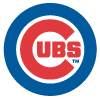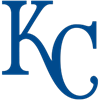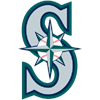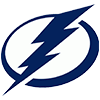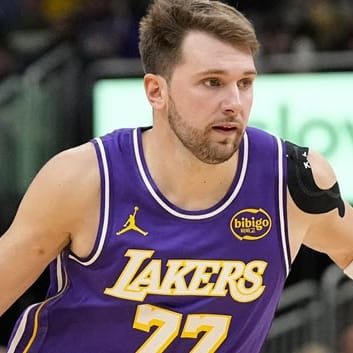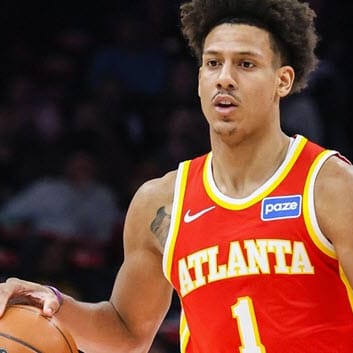PHOENIX SUNS
By Erik Siegrist
RotoWire Staff Writer
STATE OF THE FRANCHISE
Despite winning 55 games, the fourth straight season in which the Suns have won more than 50, 2007-08 was a disappointing year for Phoenix. Locker room turmoil and a perceived lack of interior defense caused GM Steve Kerr to ship Shawn Marion to Miami in exchange for Shaquille O'Neal, but the Suns still fell to the Spurs in five games in the first round of the playoffs. Coach Mike D'Antoni then left to take over behind the bench for the Knicks, and Kerr brought in former Pistons assistant Terry Porter to replace him.
The two moves, taken together, could signal an end to the team's running and gunning offense, though any team with Steve Nash at point guard is going to put up its fair share of points. O'Neal joins Amare Stoudemire in what could be a dominant front court while Leandrinho Barbosa, Grant Hill and Raja Bell provide a good mix of scoring and defense in the supporting cast. But with three players (Nash, O'Neal and Hill) 35 or older and injury concerns elsewhere on the roster, Porter may not have the luxury of putting the lineup he wants on the floor as often as he likes. This should still be a playoff team, but the days of Phoenix being among the league's elite are probably over.
PLAYING TIME DISTRIBUTION
Under D'Antoni the Suns usually went with a short rotation, which inflated the minutes of their key players a little, but it remains to be seen whether Porter will keep that system intact. The distributions here assume that he will, simply because the Suns don't have many proven bench options available.
When he's healthy O'Neal is still capable of handling 30 minutes a night, though injuries have cost him almost 30 games a season since 2005-06. Stoudemire, who declined an invite to play in the Olympics to rest his surgically-repaired knee, should play 35 minutes or more playing alongside O'Neal at the four, or taking his place at center when O'Neal is on the bench or unavailable. Boris Diaw, who previously averaged about 30 minutes as the Suns' main front court backup, could face some pressure from first-round pick Robin Lopez in that role and should see his court time reduced.
Hill stayed healthy enough to play over 30 minutes a night in 70 contests, but it's impossible to say whether that particular bolt of lightning will strike twice. Diaw will get some time behind Hill at small forward as well, competing with Matt Barnes for those bench minutes. Bell, the team's best defender, sees 35 minutes per game at the two while Nash normally gets the same workload at the point, though the Suns keep making noise about going a little easier on Nash to keep him fresher for the playoffs. European import Goran Dragic will also back up Nash, with Porter hoping he'll be able to handle 17-18 minutes as a rookie. Barbosa, who previously saw 30 minutes a game backing up both guard spots, will, like Diaw, probably see a little less action due to Dragic's presence.
PLAYER OUTLOOKS:
Center
Shaquille O'Neal: Age and injuries have taken their toll on the big man, and he recorded just 12.9 ppg, 10.6 rpg and 1.2 bpg in 28 games with the Suns. Better health might allow him to improve his block totals, but Amare Stoudemire is the first option in the Phoenix frontcourt, and O'Neal won't get enough looks to significantly bump up his scoring. On the other hand, even if the offense slows down under new coach Porter it shouldn't adversely affect O'Neal's numbers too much either, as the bulk of his scoring these days comes from putbacks and what free throws he can manage to hit. O'Neal is simply no longer a dominant force at either end of the court, and while he's still useful if you can withstand the hit to your free-throw percentage, he's not a fantasy difference-maker.
Robin Lopez: He has more hair than his brother Brook, but that's likely to be the only category in which he outperforms his sibling. Unless an injury opens up a starting spot for him, Lopez will be just a big body off the bench for the Suns this season.
Forward
Amare Stoudemire: Stoudemire had a season arguably better than his breakout 2004-05, trading a few points for a few more blocks and boards and better percentages from the floor and the line. In fact he broke the 2.0 bpg mark for the first time in his career, establishing himself as far and away the best fantasy big man in the business. Stoudemire actually improved his numbers after Shaquille O'Neal joined the team, but O'Neal's presence could prevent Stoudemire from finally breaking through to 10 rpg. There's also a concern that coach Porter's new system will slow down the offense, and fewer fast breaks would hit Stoudemire's production as hard as anyone on the team.
Grant Hill: Hill's scoring dropped for the fourth straight season, but otherwise desert life agreed with the veteran, and he turned in a fairly impressive (and, more importantly, relatively healthy) season. He'll never be a main offensive option in Phoenix, but he improved his rebounding and three-point shooting enough to be a useful multi-category fantasy contributor. Hill should have another couple of good seasons left in him, assuming of course he can stay on the court.
Boris Diaw: Diaw remains stuck in a tough spot in Phoenix, as a very good and versatile player who has better players ahead of him in the starting lineup. Diaw hasn't been able to match his numbers of two seasons ago, but in 19 starts in '07-'08 he posted 12.1 points, 5.7 rebounds, 5.0 assists and 1.1 steals, numbers that would at least be in the range of his breakout '05-'06 season if stretched out over 80-plus games. With new faces on the bench to give the Suns a bit more depth, Diaw will be hard-pressed to get as much playing time as he's used to, barring a serious injury to Grant Hill, so unless and until Diaw gets out of town, expect Diaw's overall numbers to remain a disappointment.
Matt Barnes: Barnes never seemed able to earn a regular spot in the Warriors' rotation, and his ability to do so under Porter might depend on his defensive intensity. He'll provide three-point shooting and some rebounding off the bench, assuming he even gets a chance to show his skills.
Alando Tucker: Tucker, the Suns' 2007 first round pick, put up big numbers in the D-League last season, but the team doesn't particularly need scoring up front so Tucker could once again find it tough to get regular minutes in the NBA.
Guard
Steve Nash: Nash's scoring dropped a little from the previous two years but otherwise it was another exceptional season for one of the league's elite point guards. He's averaged 17.5 ppg and 11.2 apg in his four seasons as the starter in Phoenix, and he rarely misses a free-throw or a game due to injury. But an offensive slowdown under new coach Porter could put a damper on Nash's fantasy production and reduce his assist numbers to the 7-8 range he handed out as a Maverick. Be careful investing too heavily in Nash until we have a better idea what Porter plans to do with the team.
Leandrinho Barbosa: Barbosa's numbers slipped a little from his big '06-'07, particularly his assists, but he still sank two three-pointers a game and averaged 15.6 ppg overall. His electric speed and outside shot made him a great fit for the offense under Mike D'Antoni, but new coach Terry Porter is coming from a system that enabled off-guards to put up good numbers too, though the Pistons offense was geared more to traditional spot-up shooters. Keep a close eye in training camp on how much change Porter brings to Phoenix, and how well Barbosa manages to adapt to it.
Raja Bell: Bell battled through some nagging injuries last season, and his scoring dropped a little as a result. As the Suns' best perimeter defender he figures to endear himself quickly to new coach Terry Porter and see plenty of minutes, but his fantasy value will be tied to how much Porter builds his version of the offense around the three-point shot.
Goran Dragic: Dragic drew comparisons in the Euroleague to Tony Parker due to his penchant to attack the basket, but he's not close to reaching that level yet. This season he'll be relied on mainly to give Steve Nash a rest, provide some physical defense off the bench and put a lot of work in at practice improving his outside shot.
Sean Singletary: Singletary has a good shot and passing skills but isn't physical enough to make his mark in the NBA. He's in Phoenix mainly as insurance in case Goran Dragic proves not to be ready for a regular role.
Sleeper:
Boris Diaw: It seems counter-intuitive, but Diaw may be the Sun best positioned to have a surprising bump in his numbers. He's hit his ceiling on the Phoenix bench, but one healthy season from Grant Hill isn't enough for the veteran to shake his fragile tag entirely, and if Hill goes down Diaw would be the immediate beneficiary. Also, GM Steve Kerr might not be finished with his housecleaning, and if Diaw winds up getting dealt and starting in another uniform, he can still be the multi-category producer he showed two seasons ago.
Bust:
Leandrinho Barbosa: Barbosa was almost the ideal Mike D'Antoni player. His speed fed the Suns' fast break, his outside shot allowed him to fire up three pointers at any time and his indifference to playing defense matched the coach's own. The decision to bring in former Pistons' assistant Terry Porter to replace D'Antoni behind the bench sends a signal that the run and gun days are over in Phoenix, and there's no way to tell how well Barbosa will adapt to a more deliberate half-court style of offense, or how much playing time he'll get if he doesn't pick up his intensity on the defensive end. For a player with no injury concerns, Barbosa could be as risky as they come.
Article first appeared on 10/1/08












